Here in Kent
We are incredibly lucky
To have a large and active home education community
Lots of parents invested in their children’s learning
Organising meetings, workshops, field trips and visits
We are also lucky to have companies
Who support us
And are willing to work with us
To provide exciting learning opportunities for our children
Last year we were introduced to Bindlestick Theatre Company
Through a local home ed group

Esther and William LOVED the drama sessions
Through the immersive theatre style
We learned history, geography and lots of storytelling
This year I have asked Bindlesticks to do some workshops for us
Specific to the history topics that I want Esther, William and Bea to learn
My hope is that the drama lesson will kickstart our learning of each topic
With a bang
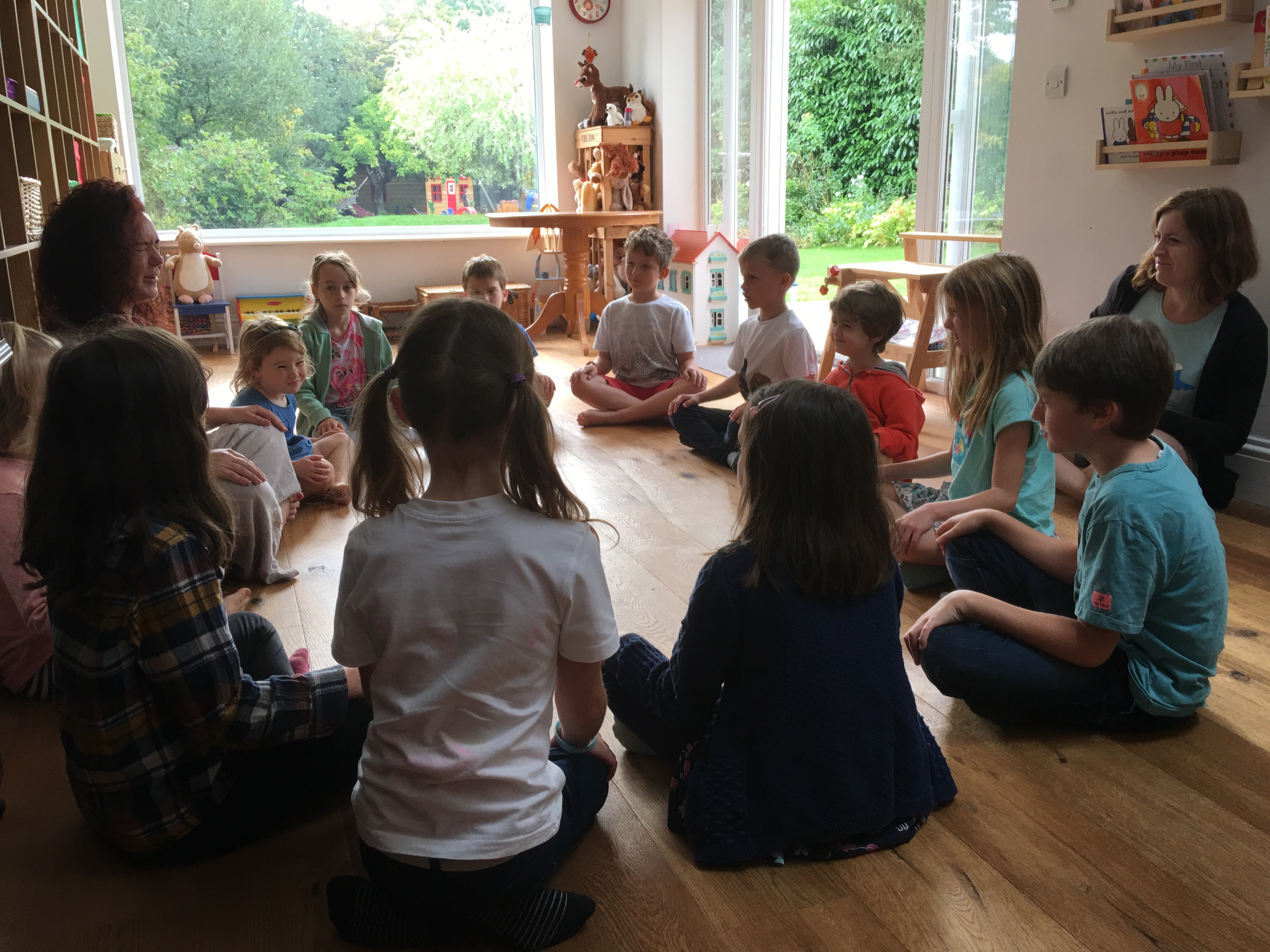
The theatre sessions are high energy
They are language rich
They encourage children to work with alone, with partners
As well as in small and large groups
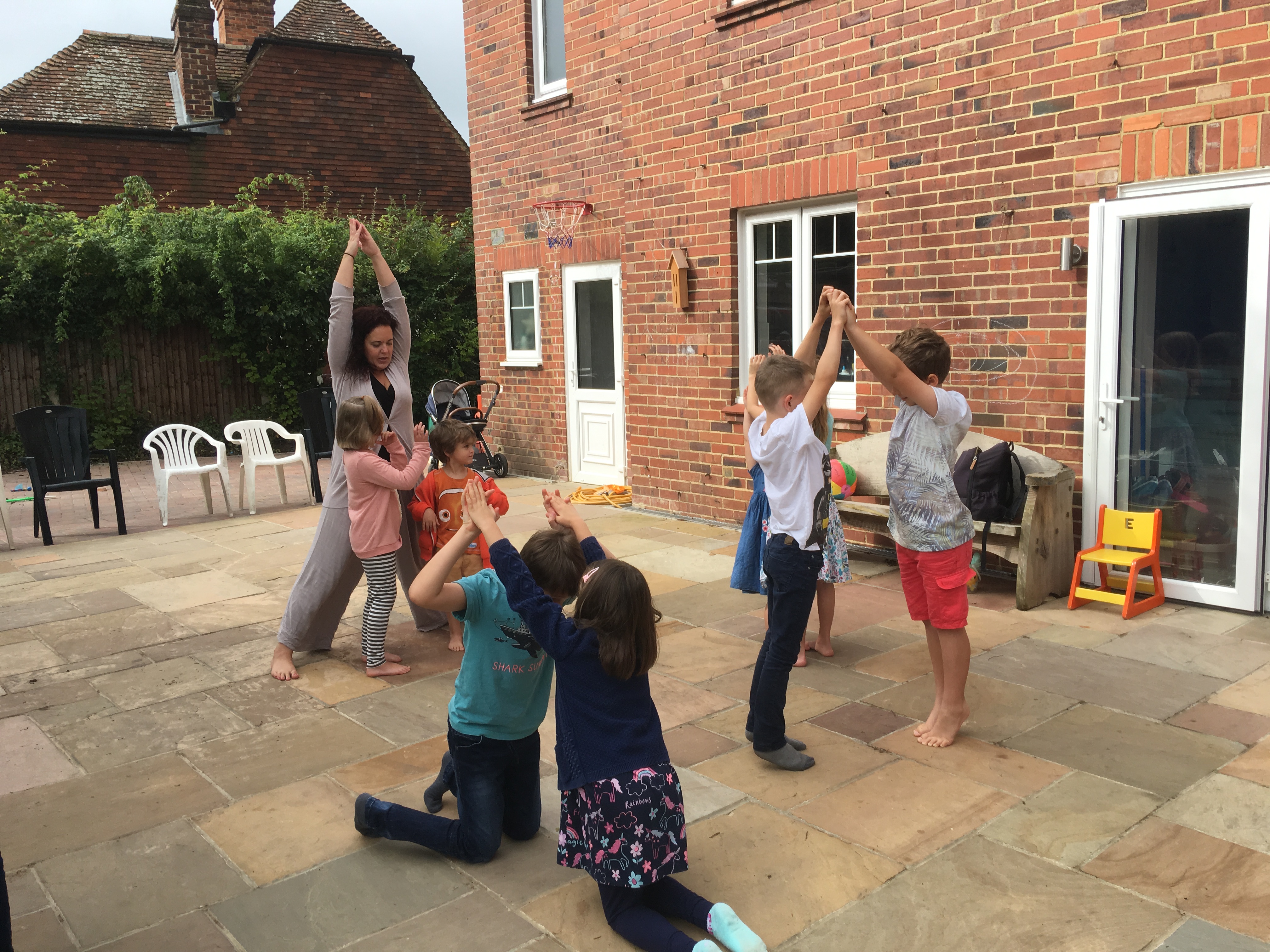
Our first session was an introduction to history
And what used to be AT1 in the history curriculum
History skills
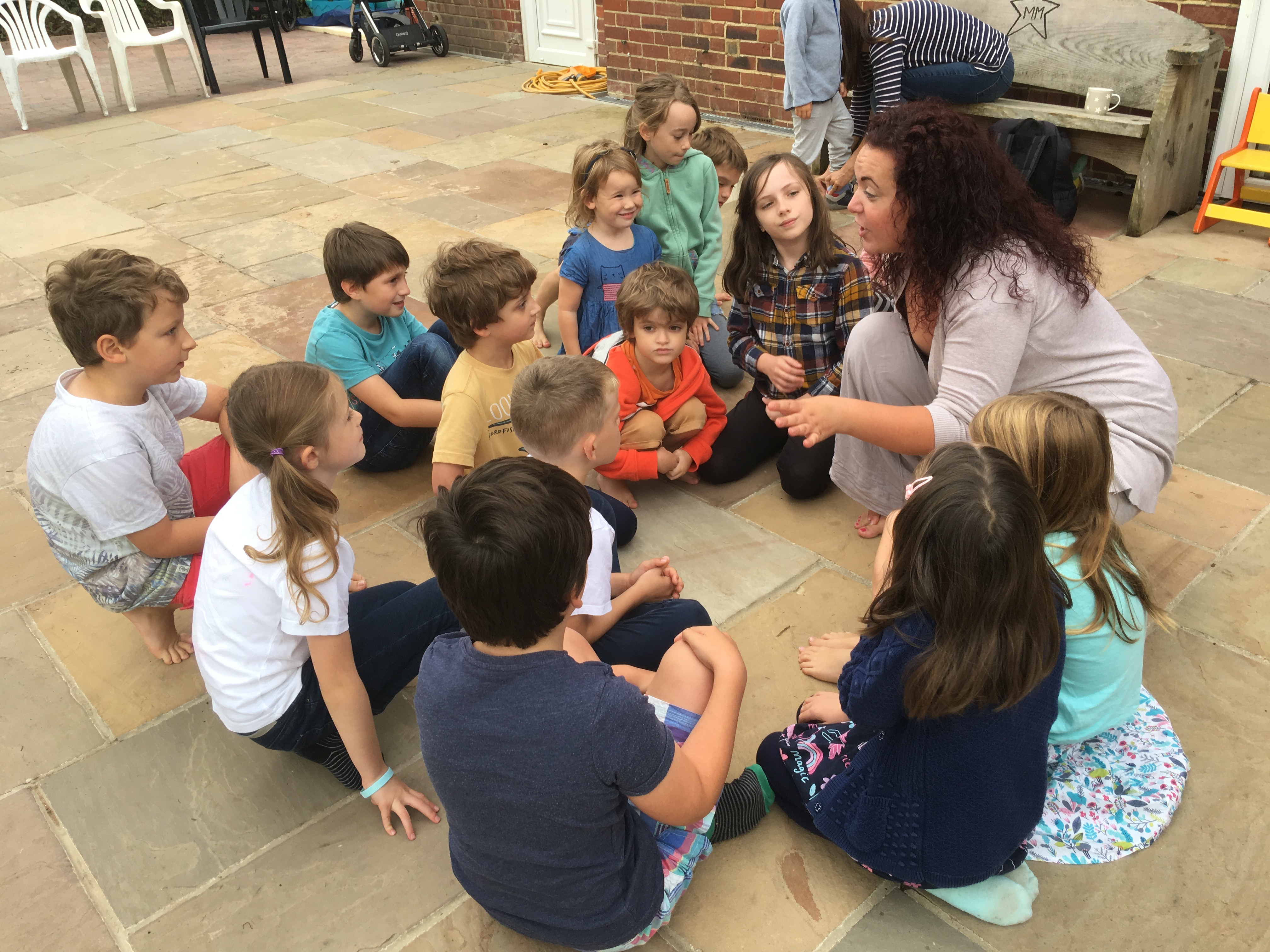
Thinking about chronology
Key time vocabulary
What history is
And how we find out about people, events and things from the past
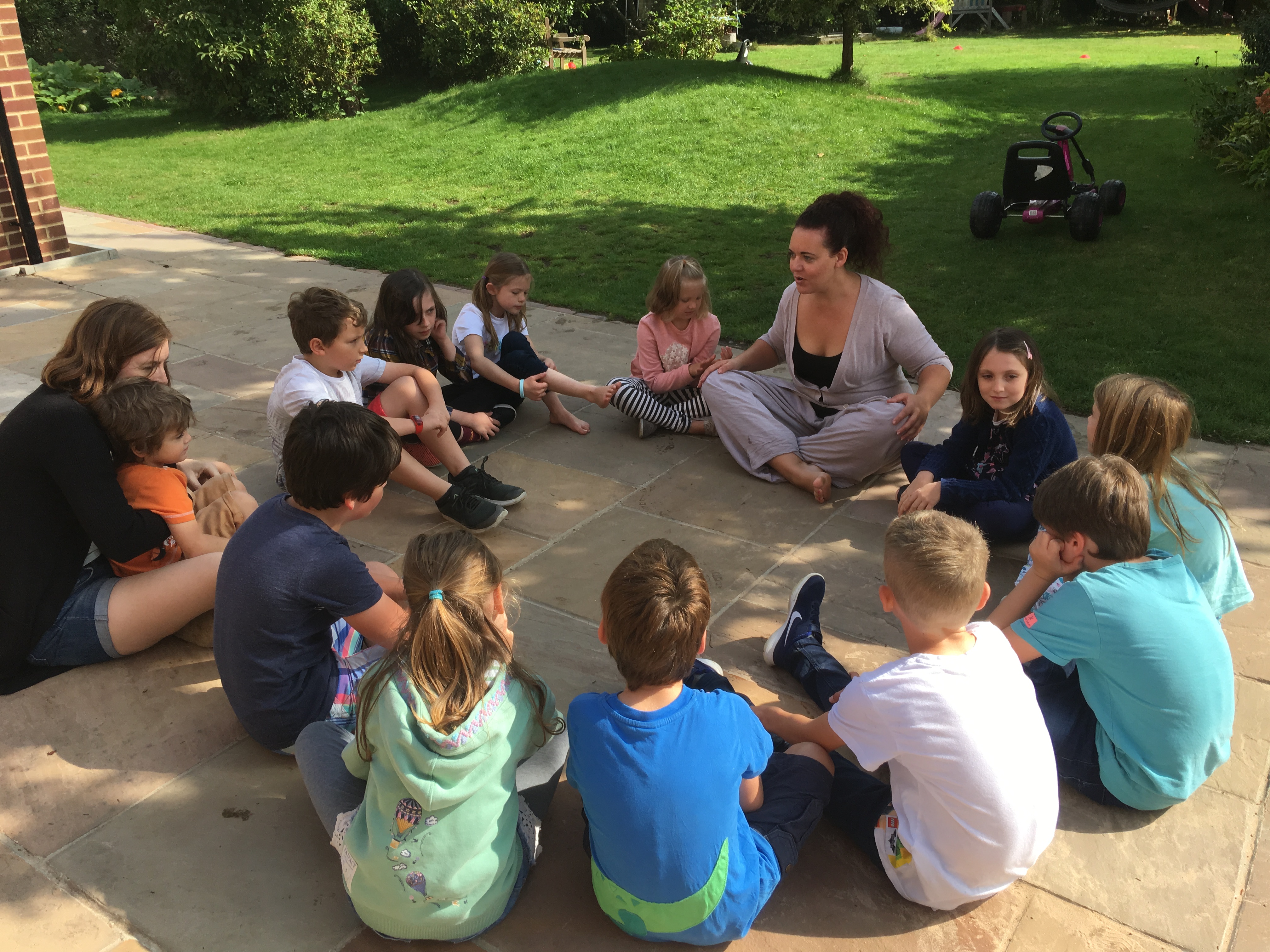
In hindsight
It was a pretty tall order to ask Katie
The Bindlesticks leader
To explore all of this through 100 minutes of drama
But she gave it a really good fabulously creative go
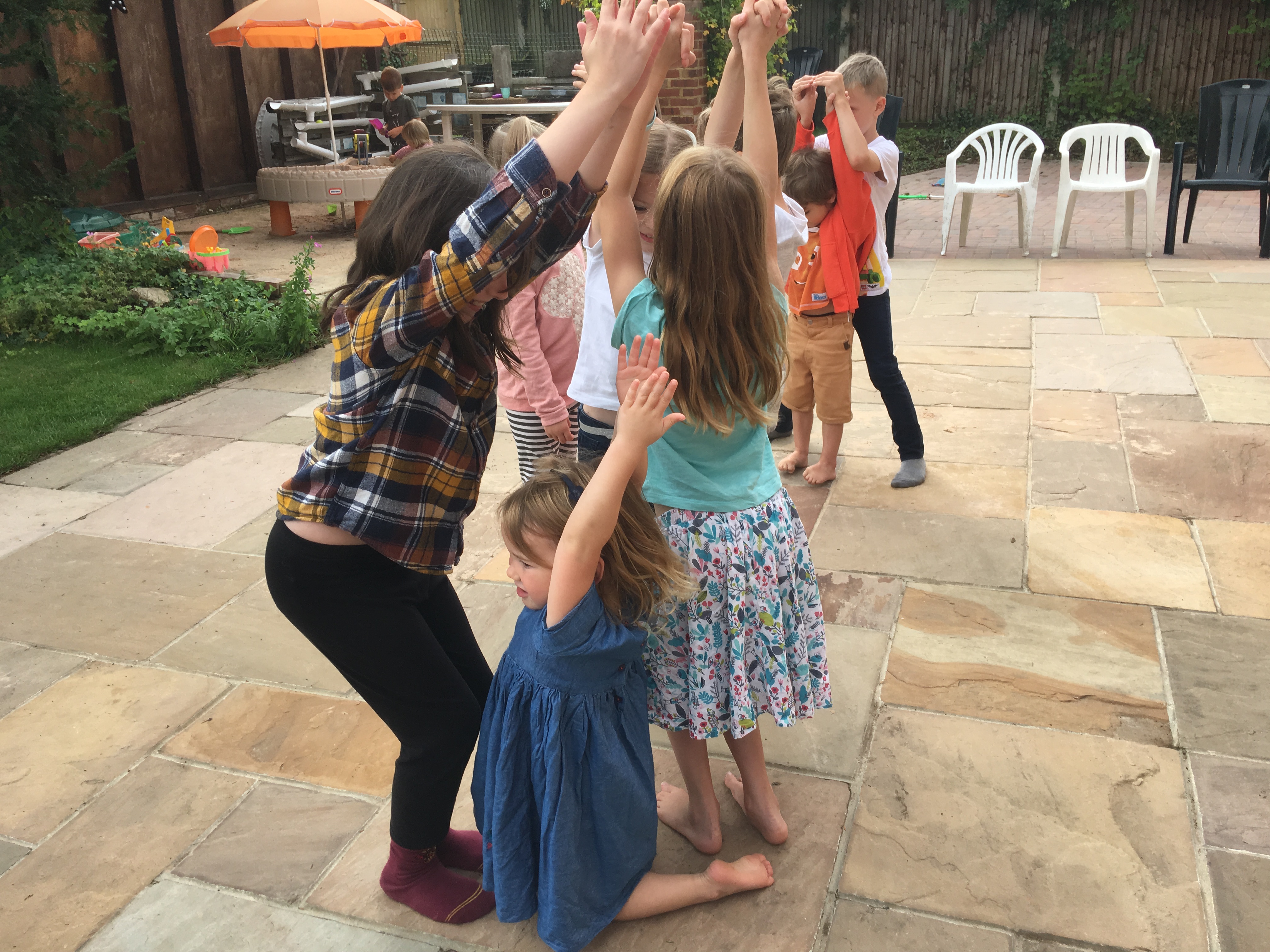
And not only that
She also spent time
Building a bond with the children
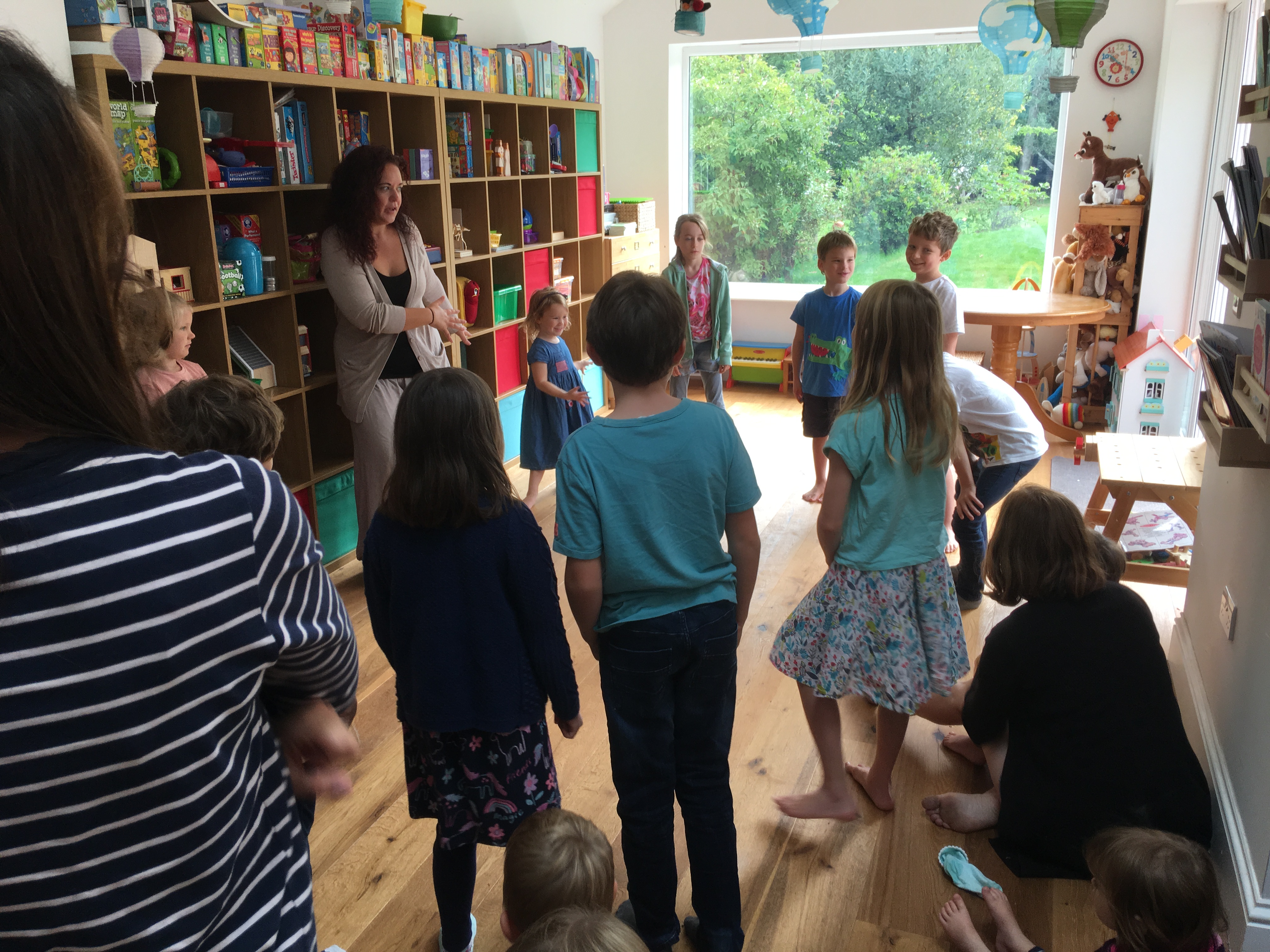
Setting some ground rules for how the workshops will work
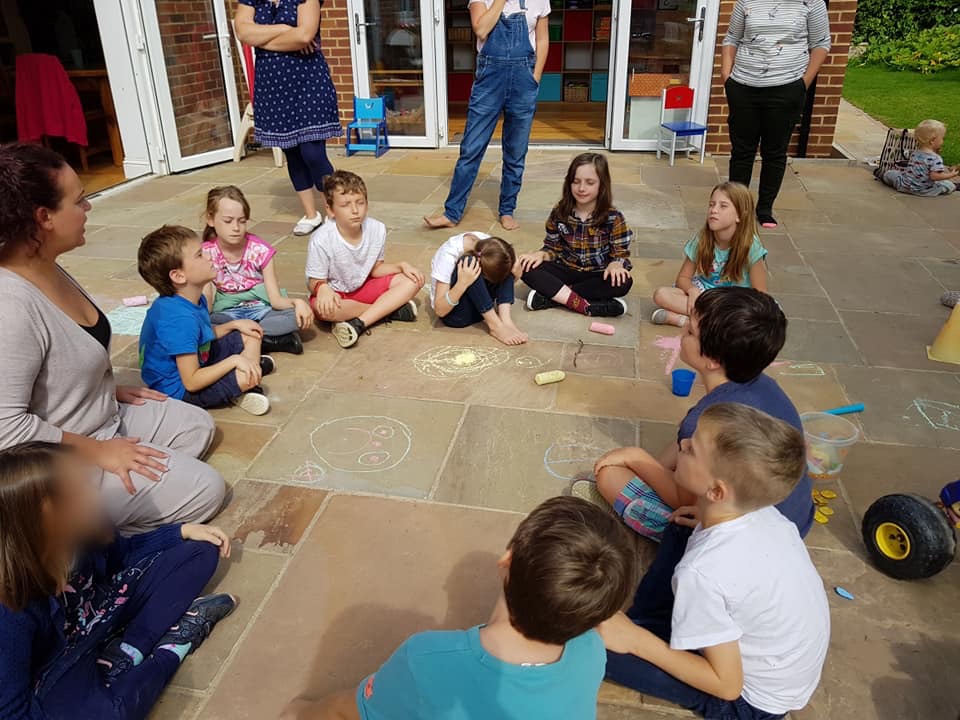
Using games to share her expectations
And get to know the children
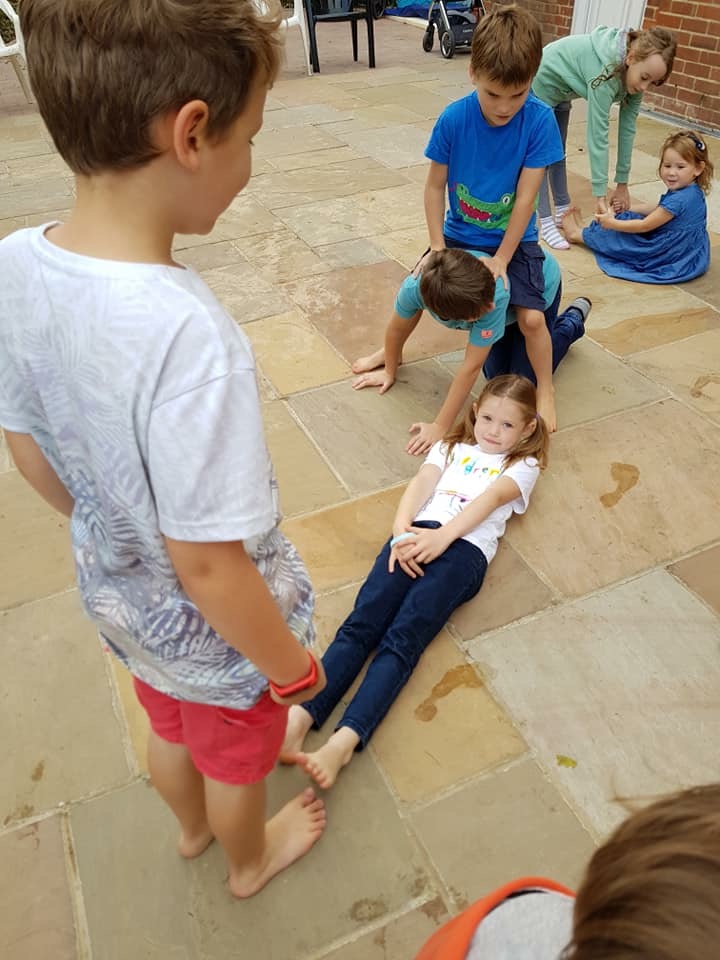
Esther and William loved the first session
And Bea, only just 4, joined in for a good chunk of the activities
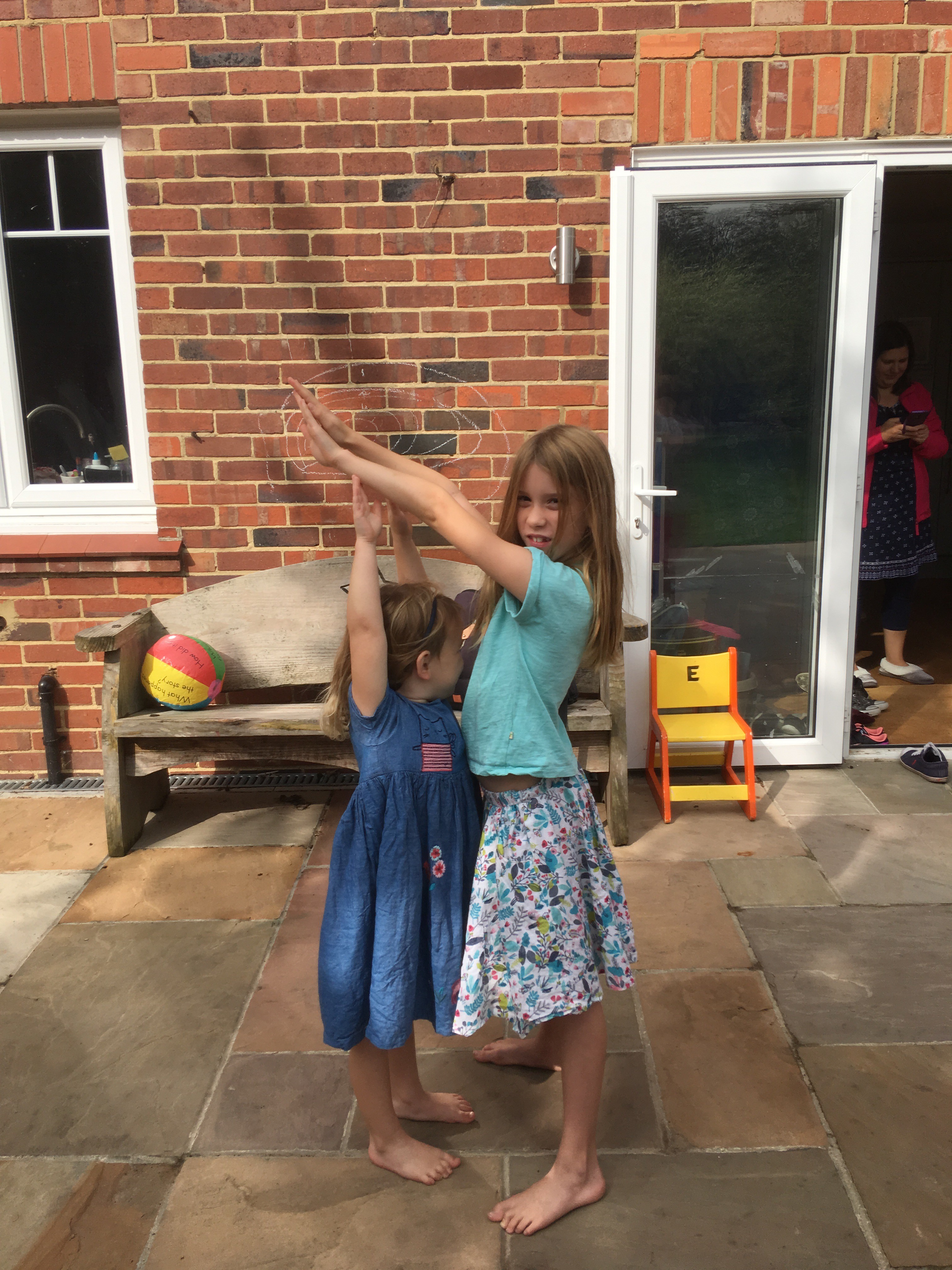
The workshop took the children travelling through time
They were dinosaurs
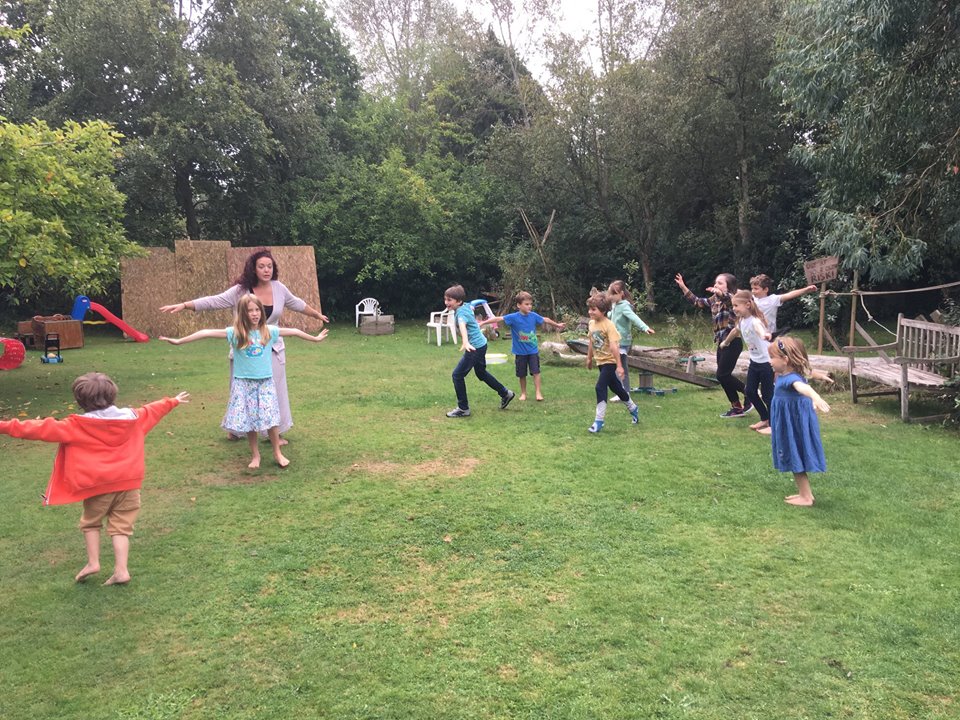
They built famous landmarks
They visited the Stone Age and Ancient Egypt

Before exploring their own memories
And those of their grown ups
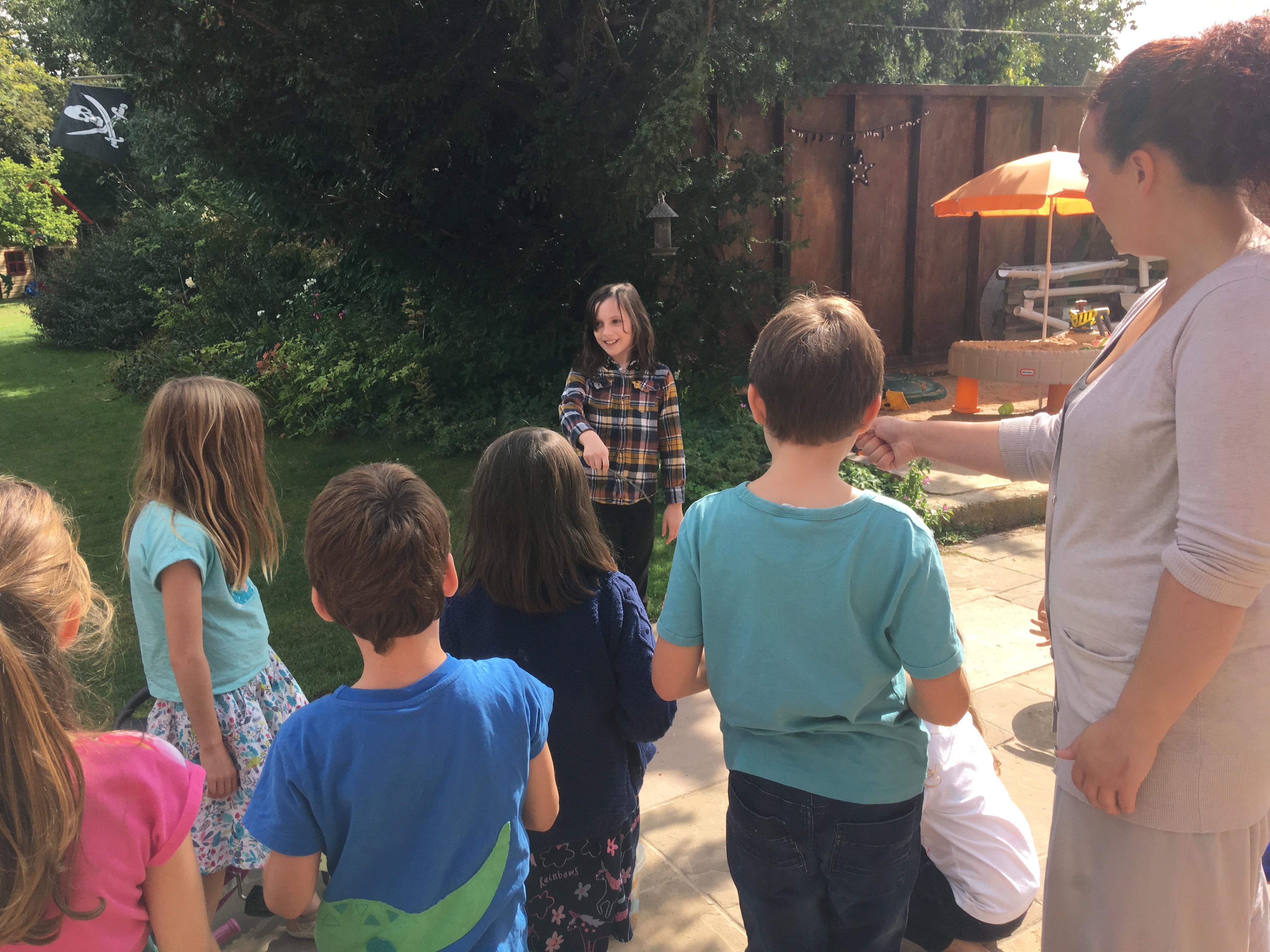
It was a fleeting flight through history
Setting us up for an exciting year of exploration
That will take us back to The Great Plague
The Great Fire of London
The World Wars
That will see us meet
Explorers, scientists, musicians and more
I am very excited for all the learning that lies ahead

After our dramatic hook into history
The children all had lunch and a play
In the afternoon
I led some more history activities
With our older children
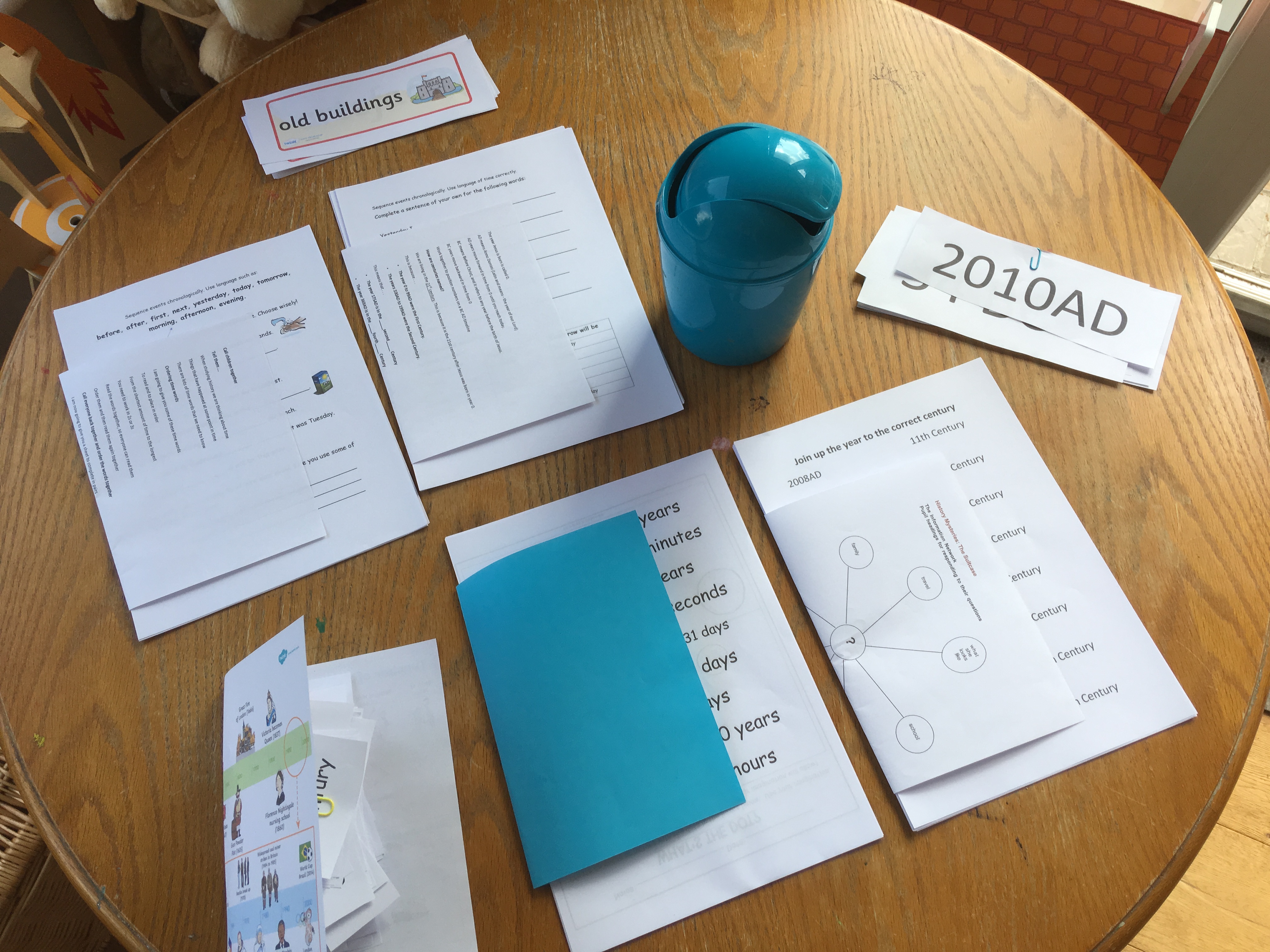
We began by thinking about what history is
And how we find out about it
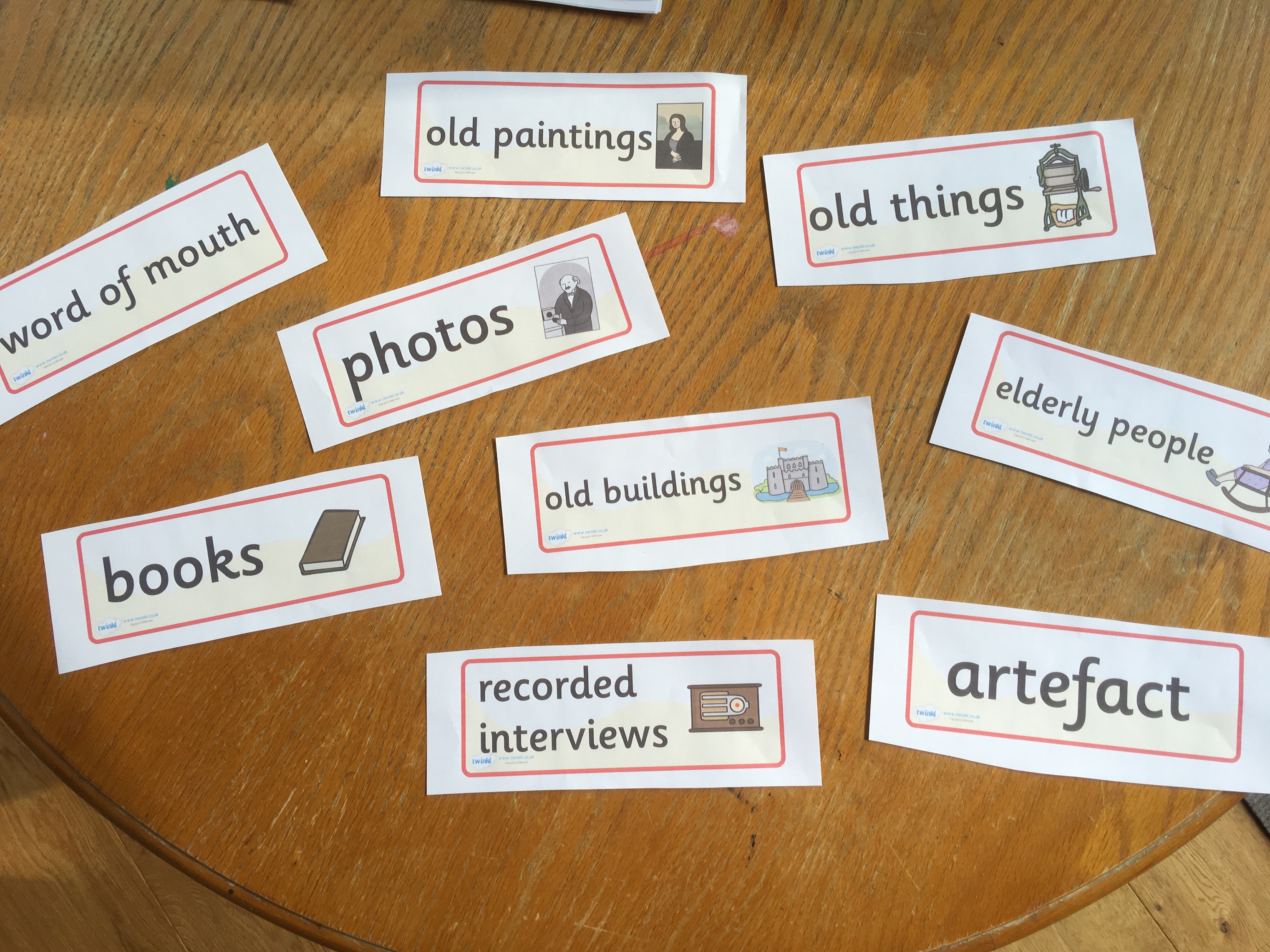
When studying history we are thinking about time
Things that have happened at some point in time
There are lots of time words that we need to know
Our first activity was ordering time words
I gave the children some of these time words
To read and to place in order
From the shortest amount of time to the longest
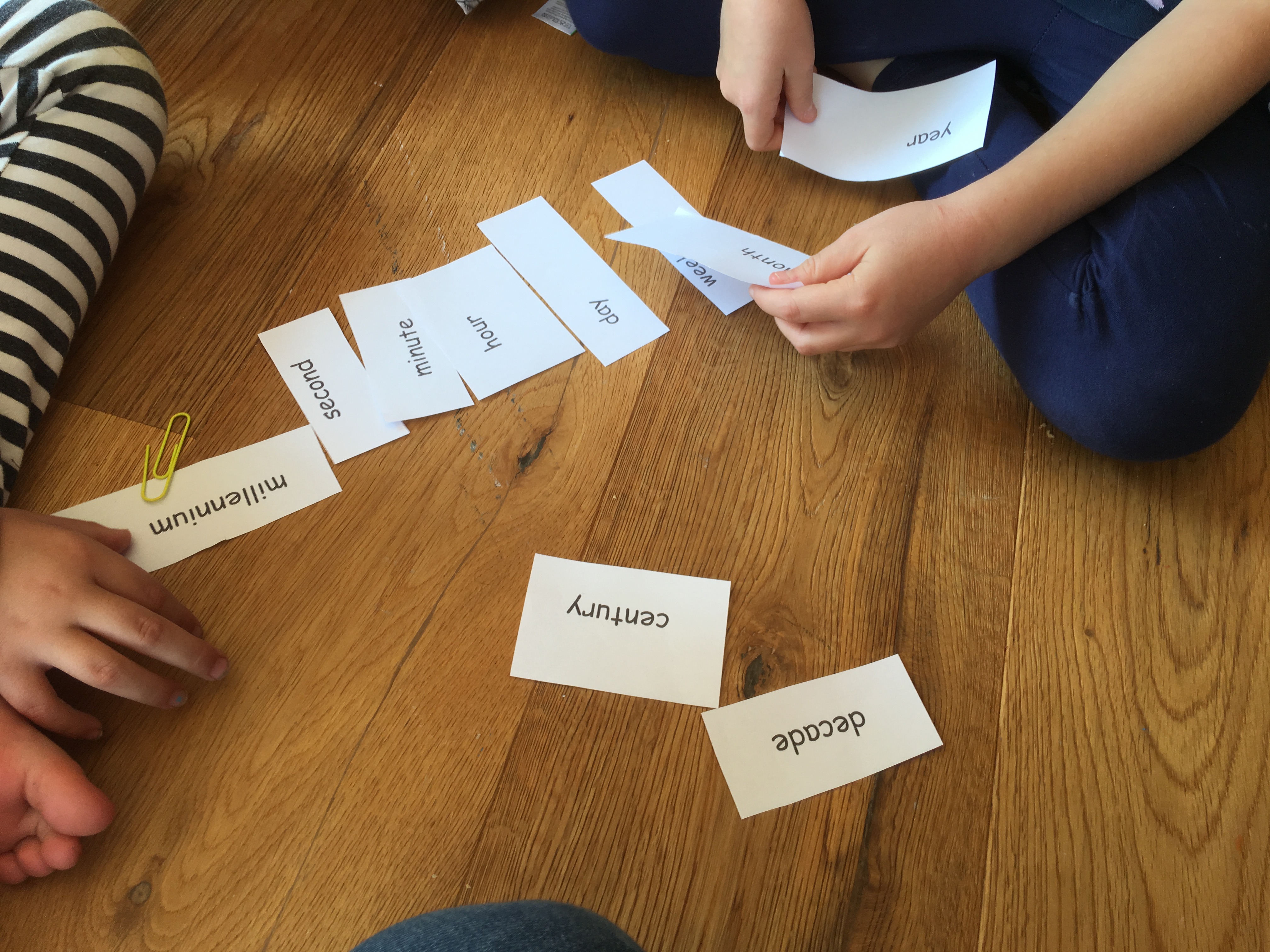
The children worked in small groups
I asked them to
Read the words together, so everyone can read them
Order them and then read them again together
We then came back together
And ordered the words together
From second to minute
Century to millennium
I then asked children to match
Time words to the correct description
For example one week is 7 days
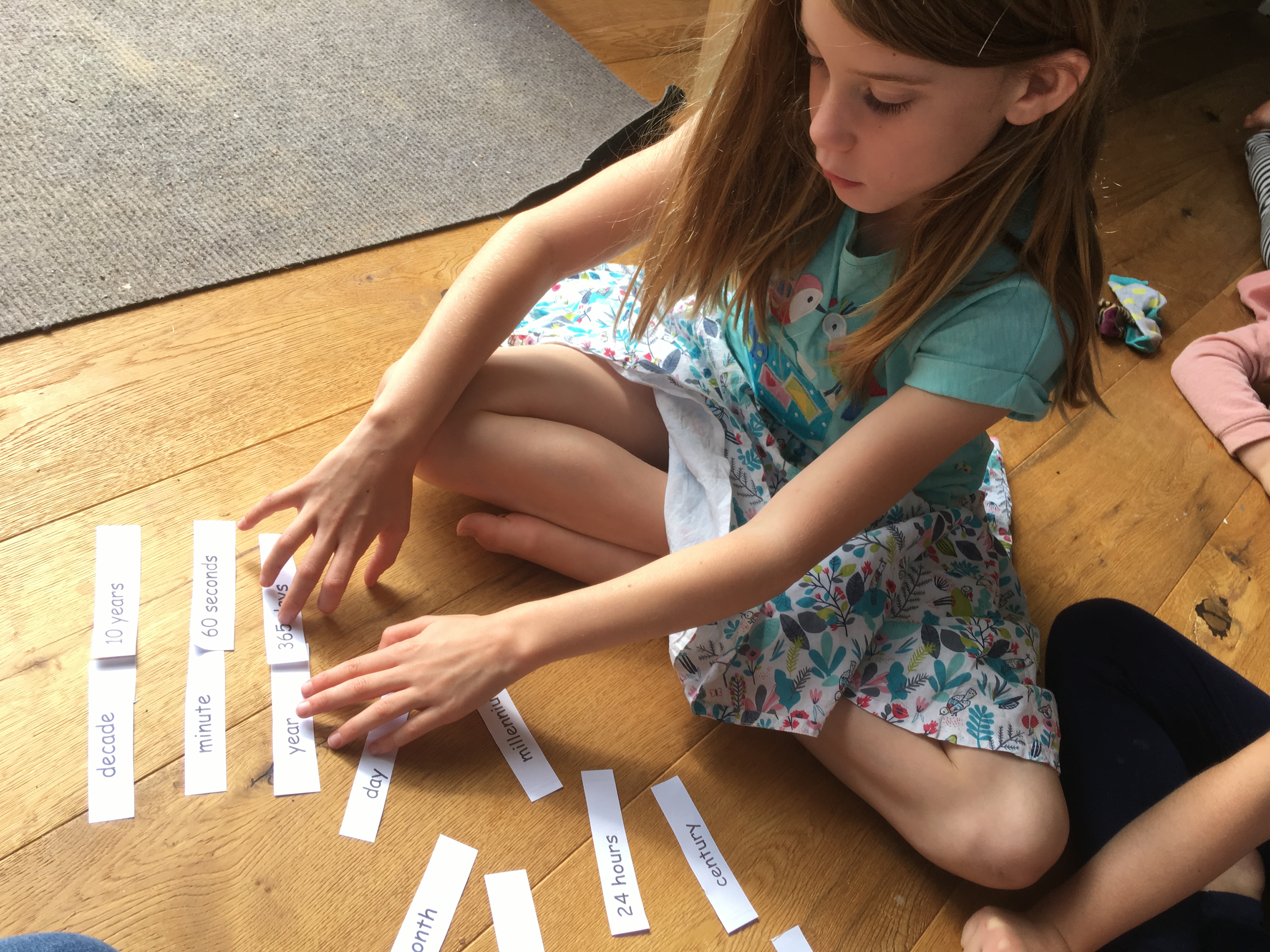
We were looking at how time is divided up
This activity got the children really thinking
And talking to each other
Sharing their understanding of different periods of time
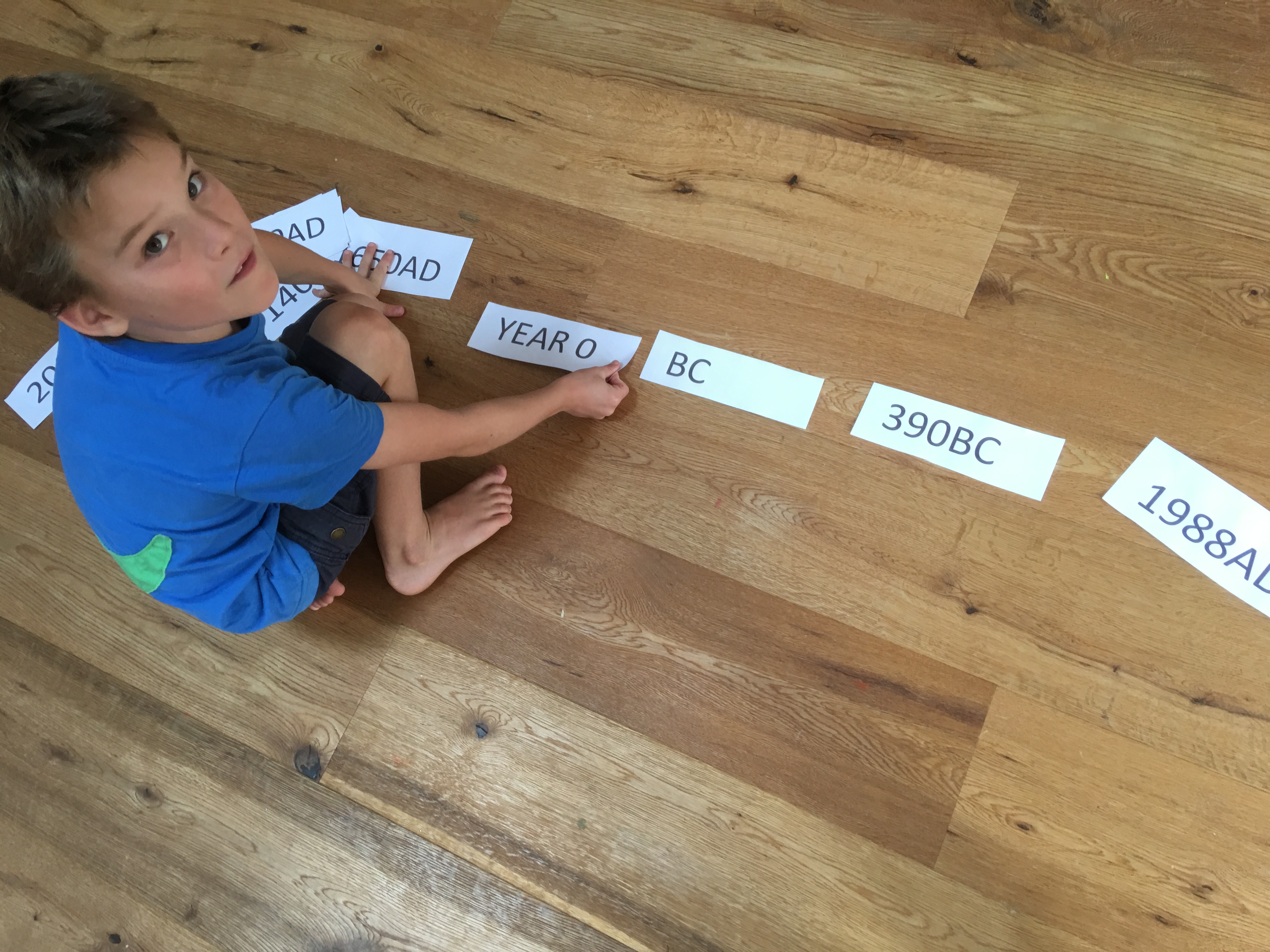
After this I had planned to talk about BC and AD
But most of the children were very tired from the drama workshop
And ALL the play
I did talk to my own children about AD and BC
And I got William to complete the ordering challenge
Which he really enjoyed
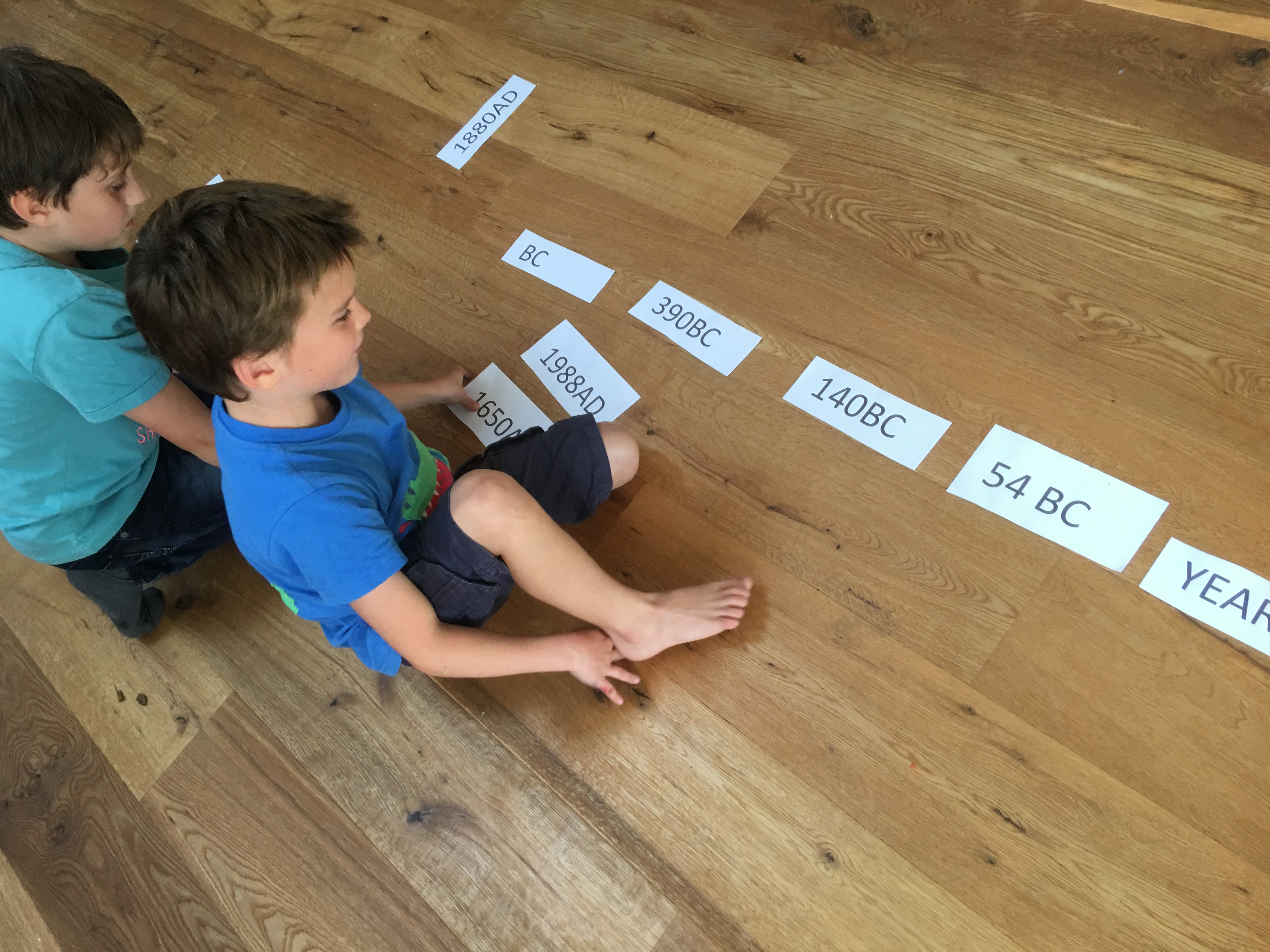
Historians often talk about years as being BC or AD
This is another way of dividing time
This is a way of making large amounts of time easier to think about when learning History
On the floor we placed Year 0 in the centre of the room
Then to the left we placed BC and AD to the right
Whilst explaining
The year Jesus is born is called 0.
AD means Anno Domini (Latin and means – the year of our Lord)
AD years move forward in time from 0 until you reach today.
BC means Before Christ, and it refers to any year before the birth of Jesus.
BC years move backward in time from 0
William then placed a range of times in the right places along the line
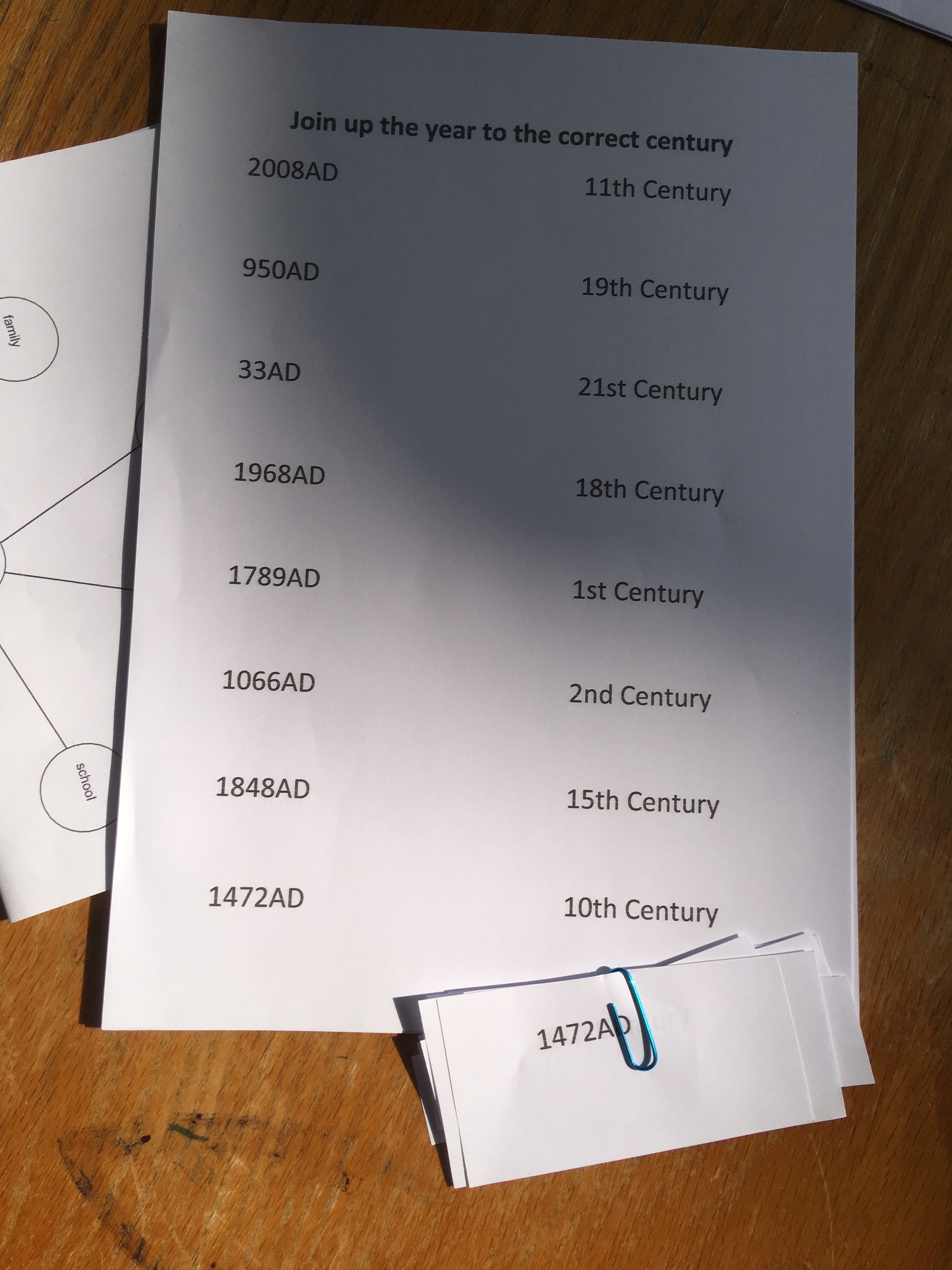
One activity that I planned that we did not do
I am going to do with my own children this week
And that is looking at how centuries are named
We are living in the 21st century
Though the year is 2018
This is because it is the 21st century after Jesus was born in year 0
This is because . . .
The year 0 to 99AD were the First Century
The years 100AD to 199AD were the Second Century
This means that . . .
The year 175AD is in the Second Century
The year 369AD is in the Fourth Century
I have made a set of cards
So that the children can join up the year to the correct century
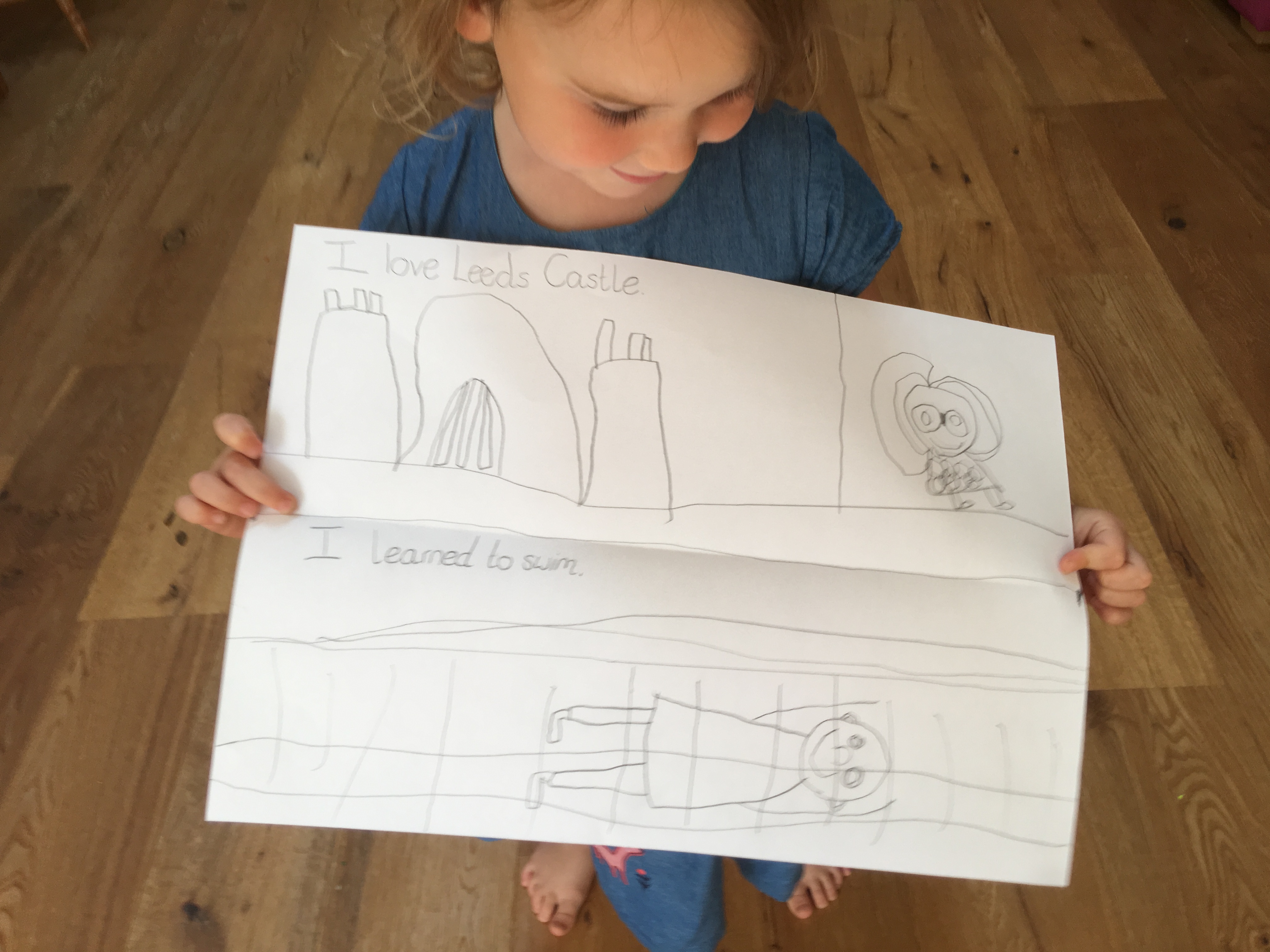
As historians we have to sequence events
Put things in order
We have to use special sequencing words
Time connectives
These are used to help us put things into order and to show that time has passed
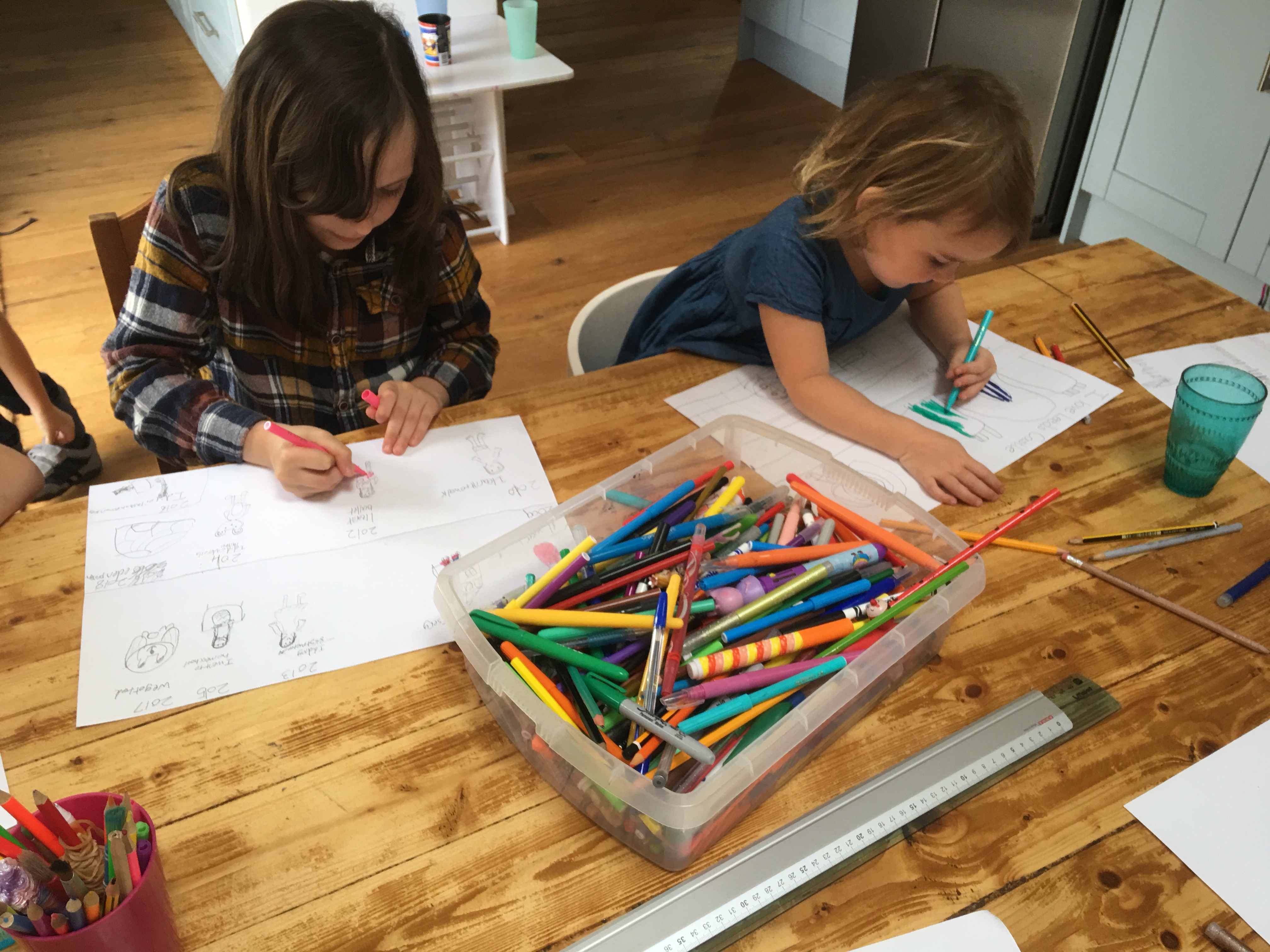
I created some fun sheets for the children to practise their vocabulary
We did not do them in this first session
As the children were tired
And actually some of the children were not completely confident
Ordering days and months and other periods of time
So I think more work needs to be done there first
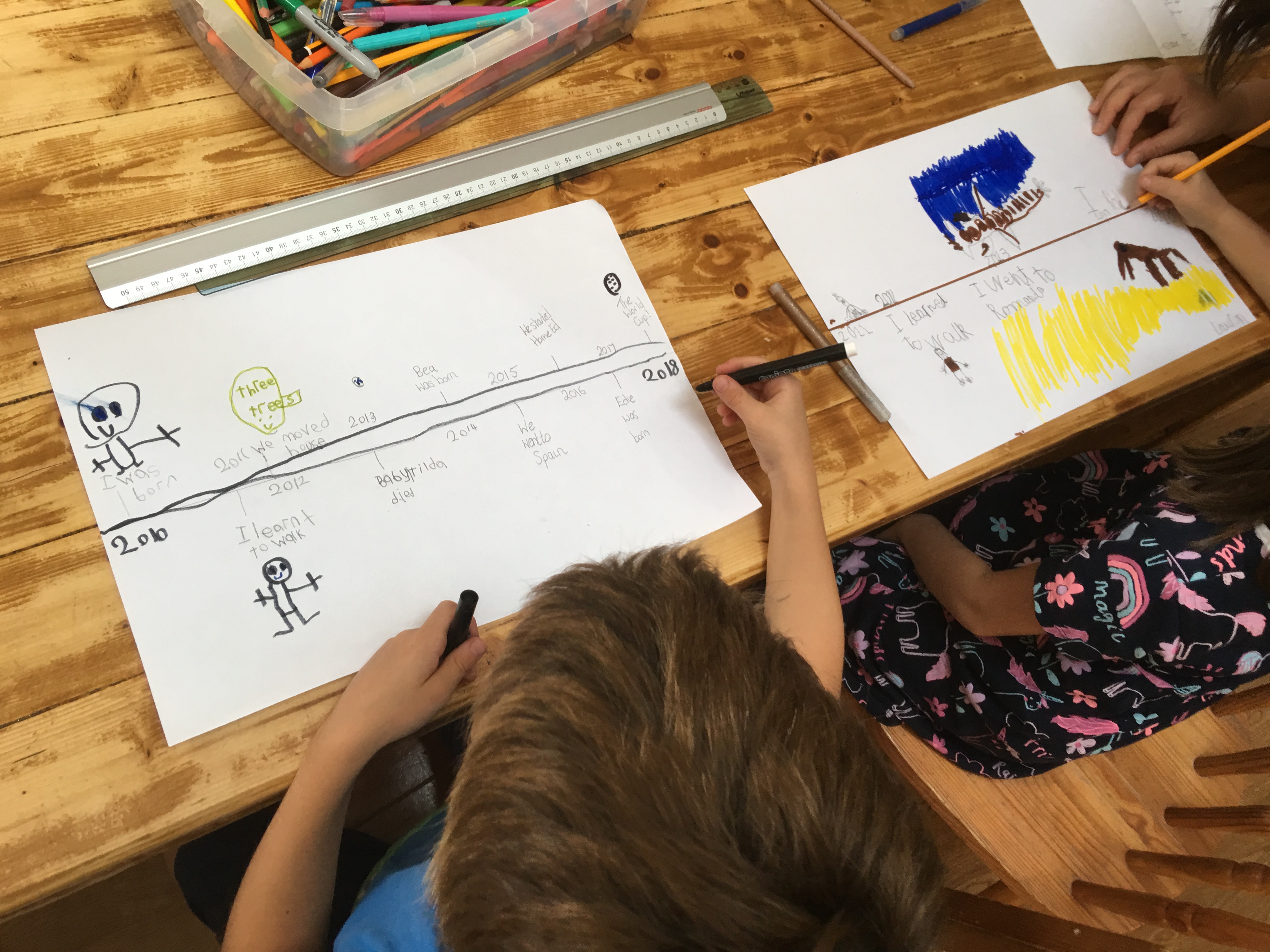
We moved from vocabulary work
To creating our own personal timelines
In history we use lots of timelines
To put things into chronological order
We sequence events according to the time they happened
We practised our sequencing skills
By creating a timeline of our own
To show the events of our lives
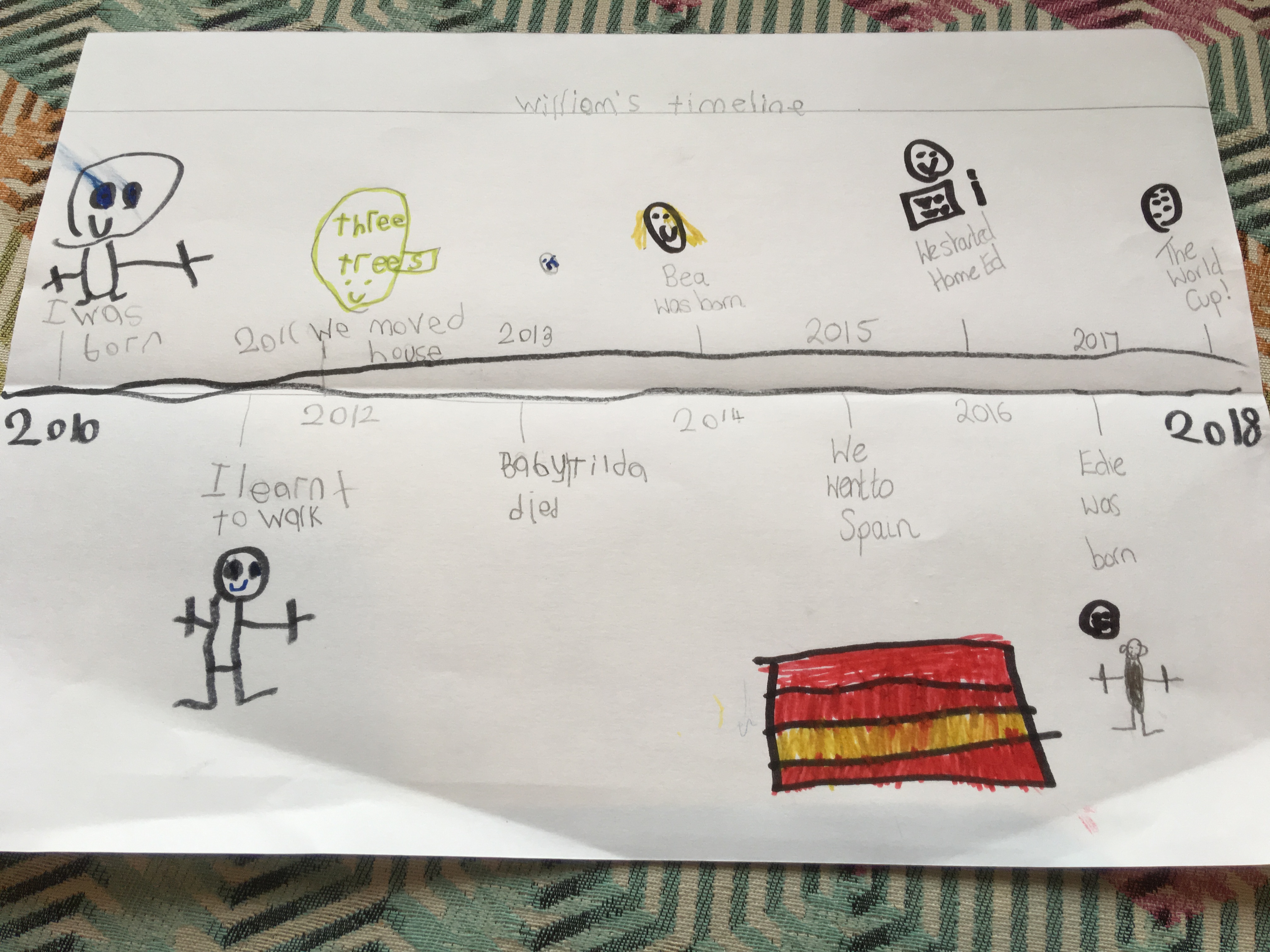
We cannot show everything
But we can show key things
This would be my timeline
1976 I was born
1979 My sister was born
1981 I started school
1982 I moved to Cyprus
1986 I moved to Germany
1987 I started secondary school
1995 I left school and worked for the British Army
2002 I went to university
2005 I got my first teaching job
2007 I met David
2010 Esther and William were born
2011 I got married
2014 Bea was born
2017 Edie was born
My timeline is long as I am old
I shared an imaginary child’s timeline
To give the children ideas for what they might include in theirs
I encouraged the children to use lots of creativity
And colour on their timelines
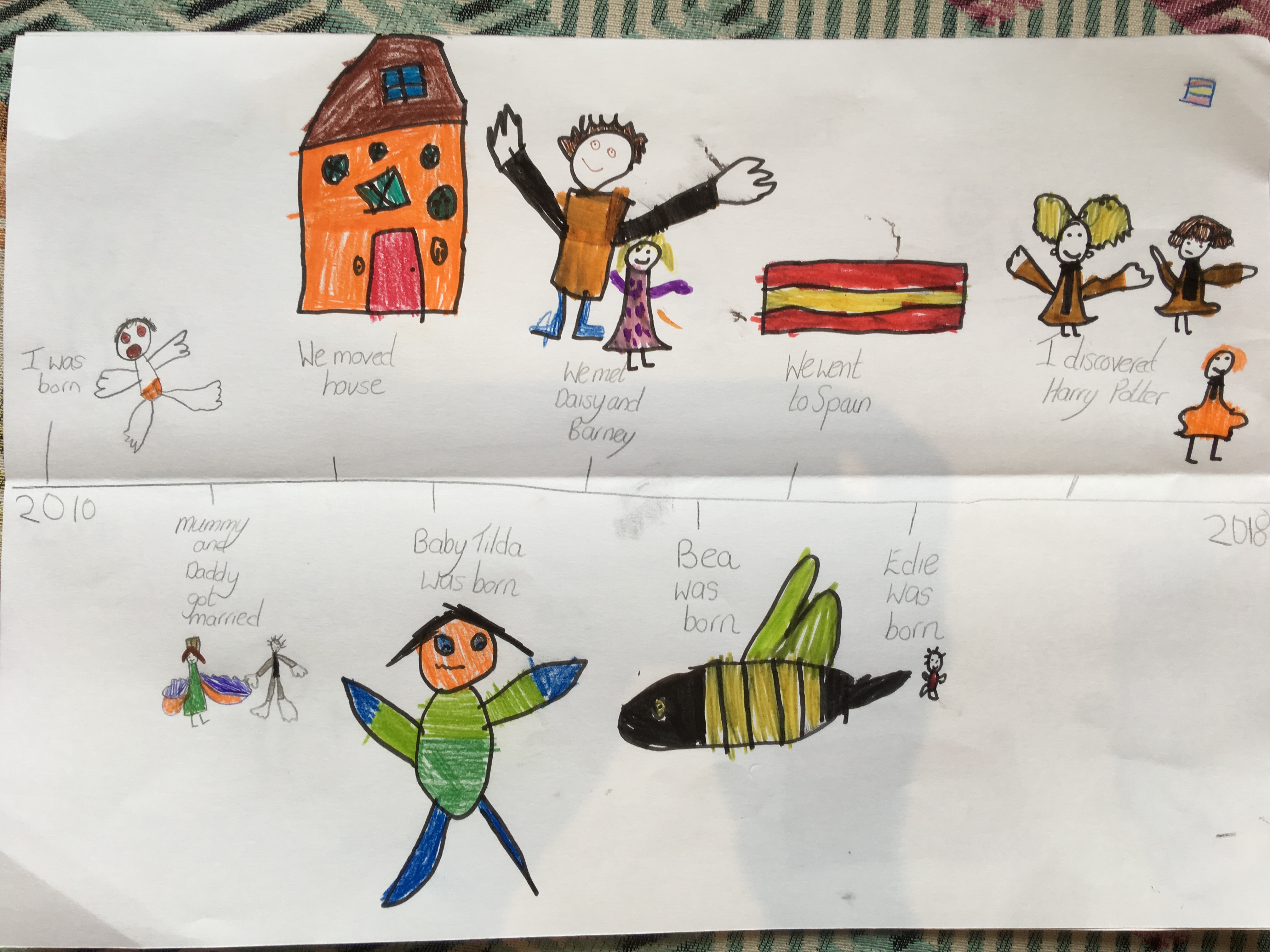
This was a lovely way to end our
History Skills Day
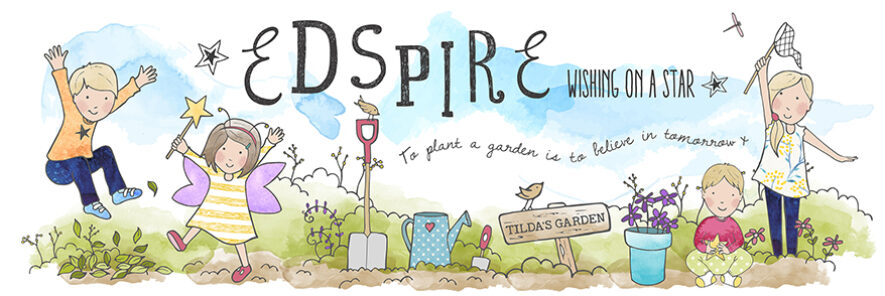
Wow, what an amazing way to get them genuinely interested in learning about history. The Bindlestick Theatre Company sounds incredible and it also sounds like you’ve really made the most of your time with them to lead on to other learning opportunities.
Nat.x
Just a thought: BCE/CE are becoming an ‘industry standard’ among historians in place of BC and AD…